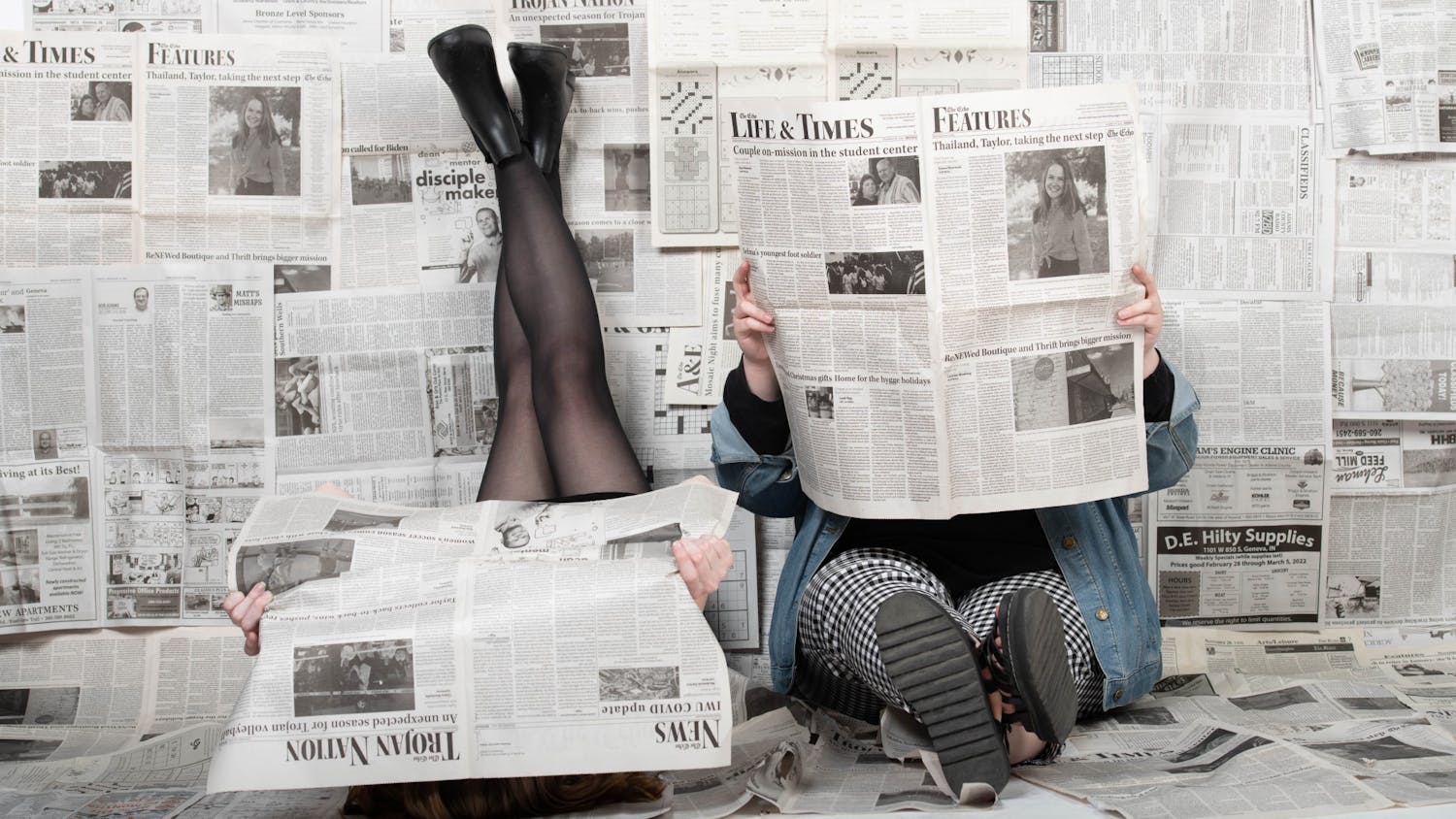Behind The Times
Kari Travis | Managing Editor
Even speeches about speeches.It's the season for speeches. Long-winded speeches. Short-winded speeches. Speeches about gun-control. Speeches about the economy.
On Tuesday, President Barack Obama's State of the Union address managed to hit on almost all of the above.
All that, and then some.
Of course, analysts are having a heavy-handed heyday, doing what they do best by picking apart the president's postulations and making projections based on his track record.
That's why we're just going to take all the idiotic, political mumbo jumbo and break it down to its bare-boned meaning.
The topics covered during the address were nothing new on roster of presidential talking points. Gun control, reform in government, climate change, voting rights and the economy all made it into the speech before the night was over.
But there was one theme that underscored the entirety of the night. A theme that has been largely disregarded by analysts who are intent on breaking down the myriad of issues posed throughout the president's speech.
In brief, President Obama continually pointed his finger at the disconnect between Republican and Democratic parties.
A disconnect that has made it nearly impossible to enact policy changes or legislative reform during Obama's first term.
"The American people don't expect government to solve every problem," Obama said during the first portion of his speech. "They don't expect those of us in this chamber to agree on every issue. But they do expect us to put the nation's interests before party."
Over the past four years, President Obama faced much difficulty achieving a middle ground of agreement between parties, particularly when it came to the resolution of problems involving both the U.S. deficit and tax reform.
"I realize that tax reform and entitlement reform will not be easy," Obama continued in his address. "The politics will be hard for both sides. None of us will get 100 percent of what we want. But the alternative will cost us jobs, hurt our economy, visit hardship on millions of hardworking Americans."
Obama encouraged both Democrats and Republicans to actively set aside party interests in order to pass a budget that would both cut spending and instigate savings.
Due to failed bipartisan efforts in the past, the American people are skeptical about any potential for progress in reuniting both parties in the future, according to a report from CNN.
And citizen bystanders aren't the only ones feeling skeptical about the prospects of success in dealings between parties.
"Obama's team sees the Republicans in Congress as mainly obstructionists, chained to the far right base of the party, fearful of primary challenges," said Chicago Sun-Times columnist Lynn Sweet. "That's why they are plotting strategies to create public pressure on Republicans."
With big issues like gun control, tax reform and the economy still on the table, the Obama administration may indeed be hard-put to accom- plish the second-term agenda set out by the president.
Ultimately, this means that Obama's speech encompassed the problems perpetuated by many other other speeches throughout the past four years.
Speeches within the House. Speech- es within the Senate. Speeches that failed to do anything other than create more political tension.
And we all know that speeches do no good until someone figures out how to stop talking and start getting the job done.
The bottom line is that there is plenty of room to debate whether or not Obama's call to put aside party politics will or will not be effective.
But if we really want to see a change, we'd be better off to shut our mouths and start listening to one another. Only when we take the time to see the perspective of the opposing side can we get anywhere close to reaching a state of reunion.





